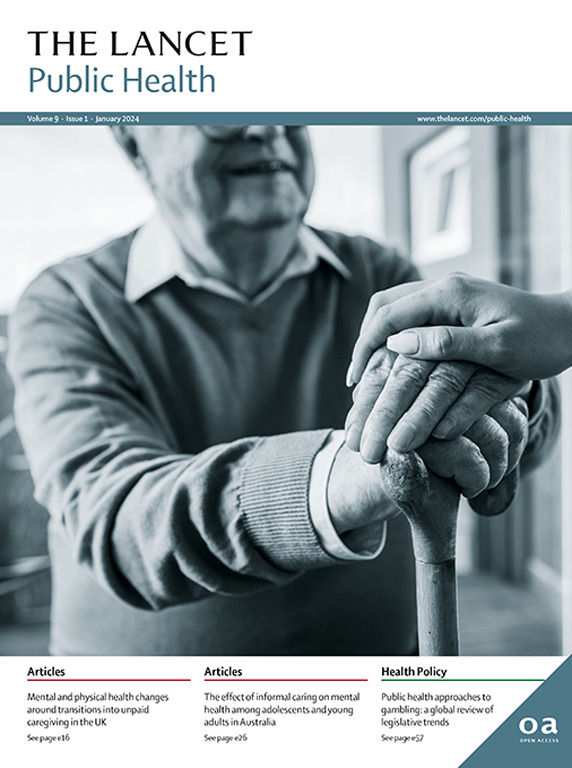De-siloing substance misuse and self-harm research through integrated public health and emergency medicine
IF 25.4
1区 医学
Q1 PUBLIC, ENVIRONMENTAL & OCCUPATIONAL HEALTH
引用次数: 0
Abstract
Acute and chronic problems related to alcohol, drugs, and self-harm are important public health challenges and are compounded by socioeconomic inequalities. People with substance use disorders or mental ill health, or both, are attended to by ambulance and emergency departments at higher rates than the general population and their outcomes are often poor, with mortality ranging from 5% to 15% within 1 year of receiving emergency care. There is a need to better understand presentations to emergency departments and opportunities for intervention. In this Viewpoint, we discuss the need for a holistic understanding of emergency care interactions linked to alcohol, drugs, and self-harm, and the urgent need for integrated research. We propose an integrated public health and emergency care approach to tackle this issue. Importantly, future research should address the underlying social and environmental determinants of substance misuse and self-harm. When developed in collaboration with people with lived or living experience, such an integrated approach to care and research has the potential to reduce harm, improve quality of life, prevent premature mortality, and inform policy and practice.通过综合公共卫生和急救医学消除药物滥用和自我伤害研究
与酒精、毒品和自残有关的急性和慢性问题是重要的公共卫生挑战,并因社会经济不平等而加剧。有物质使用障碍或精神疾病的人,或两者兼而有之的人,在救护车和急诊科接受治疗的比率高于一般人群,他们的结果往往很差,在接受紧急治疗的一年内死亡率在5%至15%之间。有必要更好地了解急诊部门的情况和干预的机会。在这一观点中,我们讨论了对与酒精、药物和自残相关的急诊护理相互作用的整体理解的必要性,以及对综合研究的迫切需要。我们建议采用综合公共卫生和紧急护理方法来解决这一问题。重要的是,未来的研究应该解决药物滥用和自我伤害的潜在社会和环境决定因素。如果与有实际生活经验的人合作制定这种综合护理和研究方法,就有可能减少危害,提高生活质量,预防过早死亡,并为政策和实践提供信息。
本文章由计算机程序翻译,如有差异,请以英文原文为准。
求助全文
约1分钟内获得全文
求助全文
来源期刊

Lancet Public Health
Medicine-Public Health, Environmental and Occupational Health
CiteScore
55.60
自引率
0.80%
发文量
305
审稿时长
8 weeks
期刊介绍:
The Lancet Public Health is committed to tackling the most pressing issues across all aspects of public health. We have a strong commitment to using science to improve health equity and social justice. In line with the values and vision of The Lancet, we take a broad and inclusive approach to public health and are interested in interdisciplinary research.
We publish a range of content types that can advance public health policies and outcomes. These include Articles, Review, Comment, and Correspondence. Learn more about the types of papers we publish.
 求助内容:
求助内容: 应助结果提醒方式:
应助结果提醒方式:


